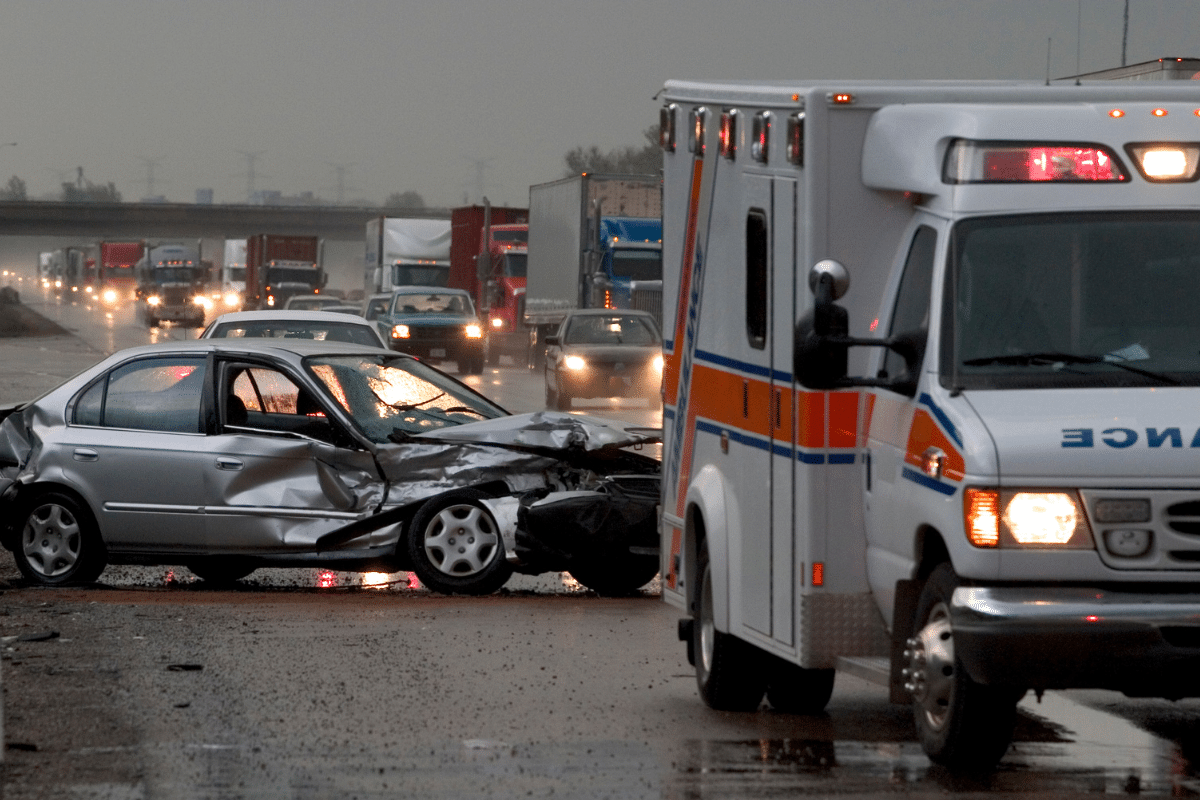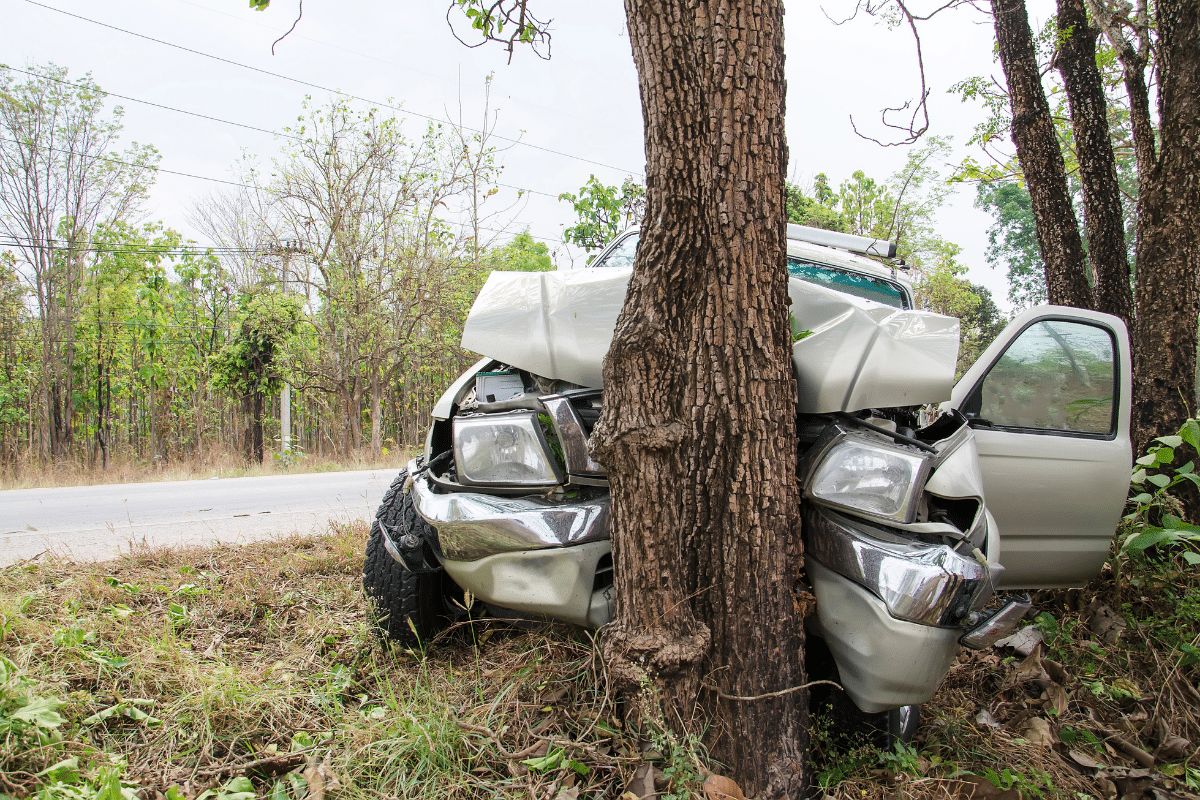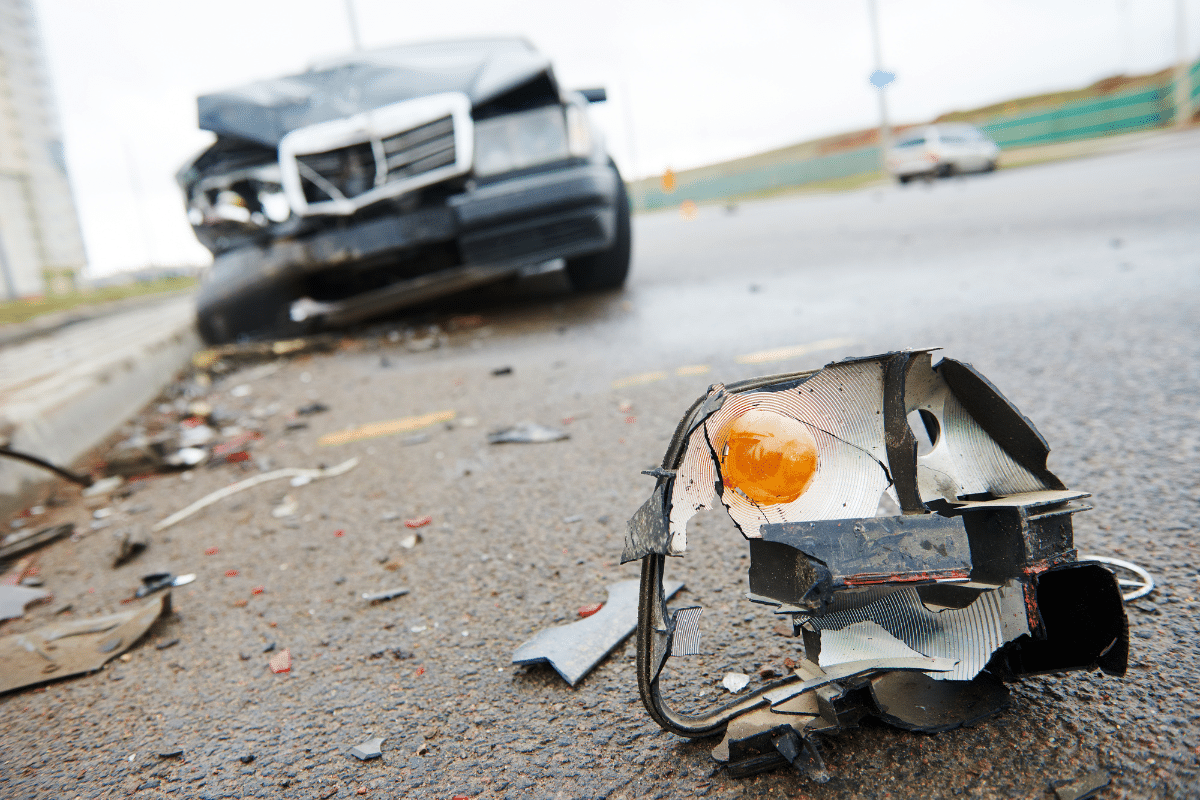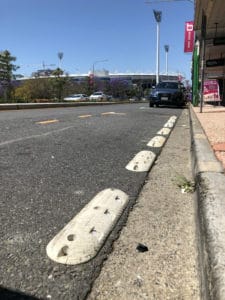

Car accidents can be distressing, both physically and emotionally, often leaving individuals uncertain about their legal rights and the steps they should take afterwards. Understanding your rights and the correct legal avenues can help you secure compensation, manage repairs, and access necessary medical care. This guide aims to provide essential information on what to do after a car crash, helping you confidently navigate the complexities of car accident law.
As we cover various aspects of post-accident rights, we’ll also explore the importance of road safety measures, such as speed humps and wheel stops, which play a role in accident prevention and community safety.

When a car accident happens, you should first ensure everyone is safe. This includes moving vehicles out of traffic (if possible) and calling emergency services. You are also allowed by law to get witness accounts, take pictures of the scene, and trade insurance and contact information with other drivers involved.
In many regions, you must report the accident to law enforcement if there are significant injuries, fatalities, or property damage. It’s also essential to contact your insurance company to report the accident as soon as possible. These initial steps strengthen your position when filing a claim, ensuring you have the necessary documentation to support your case.

Insurance plays a pivotal role in accident claims, as it usually covers damage to your vehicle, medical expenses, and sometimes even lost wages due to time off work. It’s essential to understand the terms of your insurance policy because they spell out your rights to get paid for these losses. If the other driver is at fault, you may have a right to file a claim against their insurance to cover your damages.
Knowing your insurance rights also involves understanding what not to do. For instance, avoid signing any statements or accepting settlements immediately after the accident without consulting legal advice. The insurance company may offer a quick deal to save money, but it may be less than you legally owe.

If you were hurt, have medical bills, or lost income because of the other driver’s carelessness, you may be able to sue them for damages. The legal process often involves proving negligence, which includes demonstrating that the other driver failed to act responsibly on the road. Examples of negligent behaviour can include reckless driving, ignoring traffic signals, or violating road safety measures.
While taking legal action can be beneficial, it’s essential to consult a qualified attorney specialising in car accident cases to assess the specifics of your situation. Your lawyer can help calculate the damages you’re entitled to and guide you through the claims process, providing the best chance for fair compensation.
Your right to medical care after an accident is paramount. Even if your injuries seem minor, seeking medical attention is vital as some symptoms may not be immediately apparent. Documenting all medical assessments and treatments can support your claim, particularly when pursuing compensation for medical expenses.
Sometimes, your health insurance may cover some of your treatment costs, while the remainder may be claimed through the at-fault party’s insurance. Remember that delaying medical treatment can impact the compensation process, as insurance adjusters may argue that your injuries weren’t severe if you didn’t seek prompt care.
Filing a car accident claim is time-sensitive, as most regions have a statute of limitations for personal injury claims. This time limit usually ranges from one to three years from the date of the accident, although specific deadlines may vary by location and type of claim. You must complete the filing deadline to receive any compensation.
Acting quickly after an accident ensures ample time to gather evidence, consult with attorneys, and negotiate with insurance companies. It’s also wise to check with your local jurisdiction or a legal expert to confirm the exact time limit for filing in your area.
Safety measures on the road, such as speed humps and wheel stops, are integral to accident prevention, particularly in areas with high foot traffic or residential zones. Speed humps, for example, help to slow down vehicles, reducing the likelihood of crashes in accident-prone areas. Wheel stops are also beneficial, helping to manage parking and preventing cars from encroaching on pedestrian zones.
At Speed Humps Australia, we believe in the importance of these safety measures in creating safer road environments. As a company dedicated to road safety solutions, we provide quality speed humps and wheel stops to communities and businesses, aiding in accident prevention and enhanced safety.
Legal guidance after a car crash is invaluable, as a personal injury lawyer can help you navigate the complexities of the claims process and advocate for your rights. Attorneys specialising in car accident cases can assist you in gathering evidence, negotiating with insurance companies, and presenting a solid case if a lawsuit becomes necessary.
You should know that most lawyers who help hurt people only get paid if you win. When you’re injured, this plan can help you get a lawyer even if you can’t pay for one. This can help you get the money you’re legally owed.
Settling your car accident case can be viable, allowing you to avoid the time and expense of going to trial. Settlement offers from insurance companies are common, but it’s essential to approach them cautiously. Accepting a low settlement offer could prevent you from securing the total amount needed to cover medical bills, vehicle repairs, and other expenses.
Having a lawyer review any settlement offers ensures you’re not undervaluing your claim. Your lawyer can also talk to the insurance company and use their knowledge to get a fair result.
Depending on the specifics of your accident, there are various types of compensation you might be entitled to receive, including:
Each type of compensation requires evidence and legal justification, making it essential to document every detail related to your accident and subsequent losses.
After understanding your rights and pursuing legal action if necessary, take proactive steps to avoid future accidents. For instance, practising defensive driving, staying within speed limits, and avoiding distractions can significantly reduce the likelihood of collisions.
The road environment also plays a critical role in preventing accidents. Features like speed humps and wheel stops, which we provide, are designed to protect drivers, pedestrians, and property. By fostering safer driving habits and supporting the installation of these safety features, we contribute to a safer community for everyone.
Understanding your rights after a car crash empowers you to take control of the situation and pursue the compensation you deserve. From knowing how to approach insurance claims to seeking appropriate legal guidance, each step plays a role in achieving a fair resolution.
By knowing and acting on your rights and responsibilities, you can protect yourself and make driving safer and more responsible for everyone else.



For 10 years, our focus has been on one thing: to provide one style of product and to do it well.
Our wheel stops, speed humps and rumble bars meet Australian Standards, don’t fade, and we’ve never needed to replace one.

For 10 years, our focus has been on one thing: to provide one style of product and to do it well.
Our wheel stops, speed humps and rumble bars meet Australian Standards, don’t fade, and we’ve never needed to replace one.